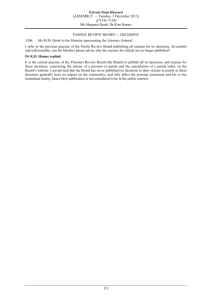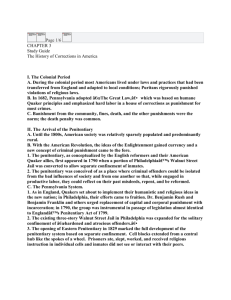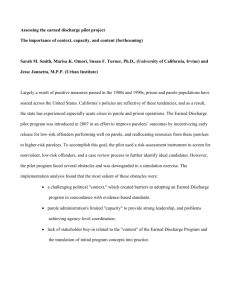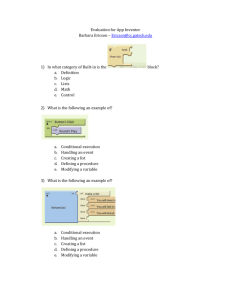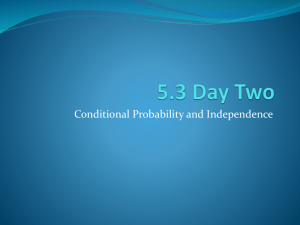Cancellation of conditional release (dogmatic and empirical
advertisement
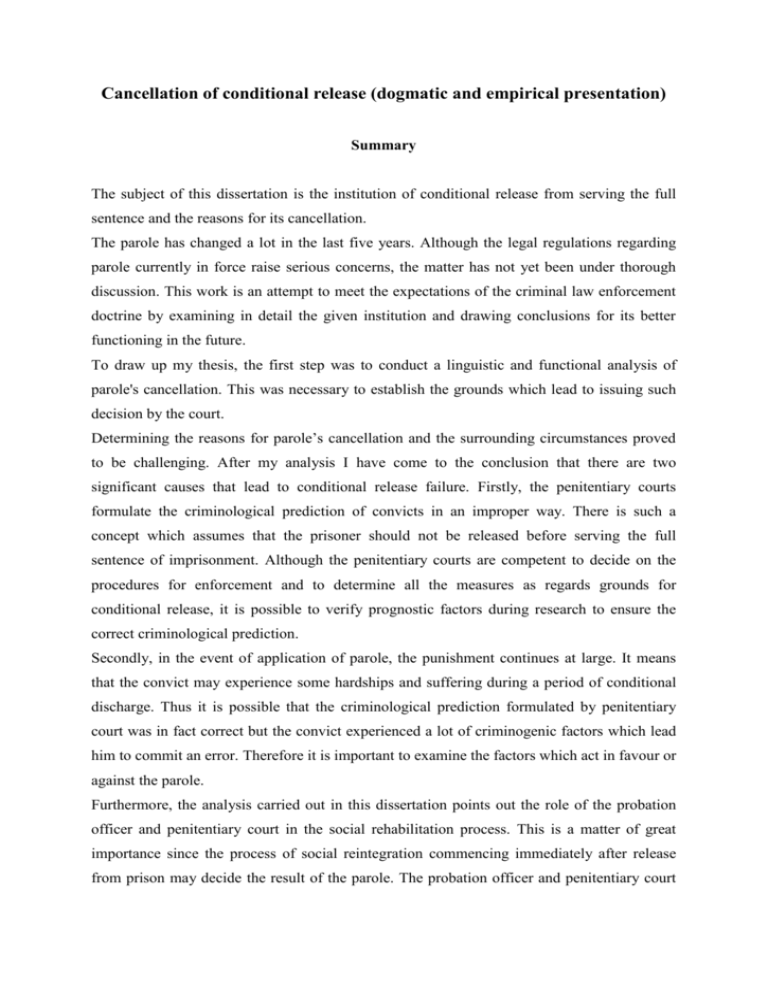
Cancellation of conditional release (dogmatic and empirical presentation) Summary The subject of this dissertation is the institution of conditional release from serving the full sentence and the reasons for its cancellation. The parole has changed a lot in the last five years. Although the legal regulations regarding parole currently in force raise serious concerns, the matter has not yet been under thorough discussion. This work is an attempt to meet the expectations of the criminal law enforcement doctrine by examining in detail the given institution and drawing conclusions for its better functioning in the future. To draw up my thesis, the first step was to conduct a linguistic and functional analysis of parole's cancellation. This was necessary to establish the grounds which lead to issuing such decision by the court. Determining the reasons for parole’s cancellation and the surrounding circumstances proved to be challenging. After my analysis I have come to the conclusion that there are two significant causes that lead to conditional release failure. Firstly, the penitentiary courts formulate the criminological prediction of convicts in an improper way. There is such a concept which assumes that the prisoner should not be released before serving the full sentence of imprisonment. Although the penitentiary courts are competent to decide on the procedures for enforcement and to determine all the measures as regards grounds for conditional release, it is possible to verify prognostic factors during research to ensure the correct criminological prediction. Secondly, in the event of application of parole, the punishment continues at large. It means that the convict may experience some hardships and suffering during a period of conditional discharge. Thus it is possible that the criminological prediction formulated by penitentiary court was in fact correct but the convict experienced a lot of criminogenic factors which lead him to commit an error. Therefore it is important to examine the factors which act in favour or against the parole. Furthermore, the analysis carried out in this dissertation points out the role of the probation officer and penitentiary court in the social rehabilitation process. This is a matter of great importance since the process of social reintegration commencing immediately after release from prison may decide the result of the parole. The probation officer and penitentiary court should both support and control a convict during the period of conditional discharge. The research exposed some irregularities in fulfilling this duties. A convict's stay at large is a good opportunity to check the effectiveness of common methods for rehabilitation of prisoners. The convicts were inspected only in area which made it difficult to show the effectiveness of specific penitentiary influence. The dissertation may show the reasons for which the social readjustment of penitentiary convicts proves ineffective. The research for my thesis was carried out based on the parole subject to jurisdiction of the Regional Court in Gliwice. The dissertation has been arranged in eight chapters, preceded by an introduction and concluded with a summary. Its main focus is the challenges faced by the convict during a period of conditional discharge and effective measures to reduce a number of cancellations of conditional release.
